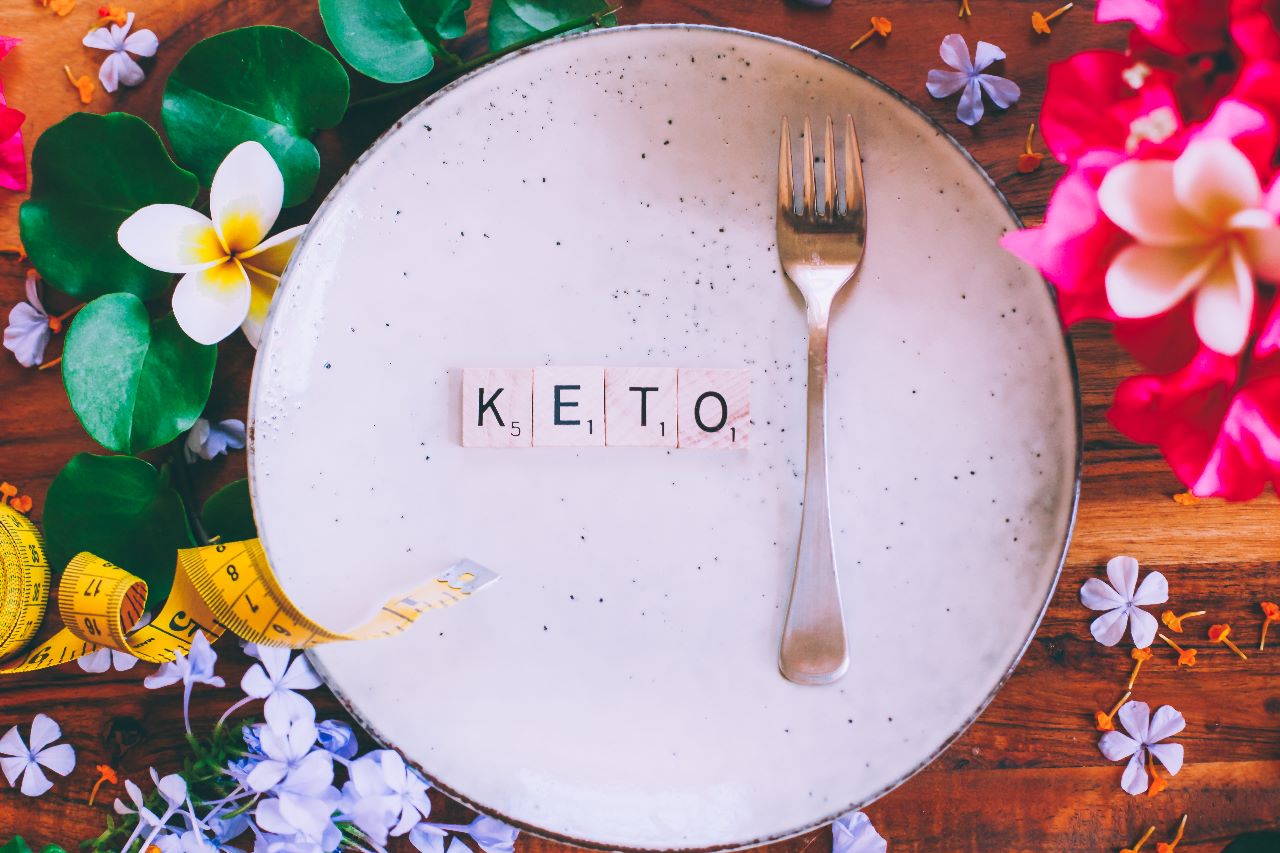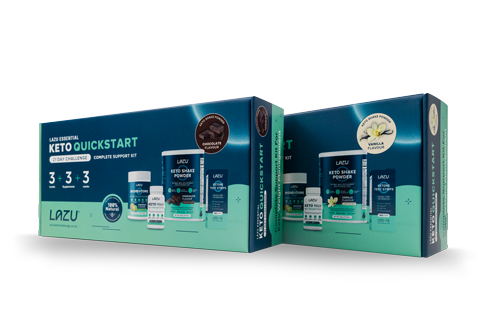
The keto diet is a low-carb, moderate-protein, and high-fat diet. Initially, it was created to help decrease epilepsy symptoms. But, over the years, scientists figured there were other benefits to the keto diet, such as weight loss, improved bloodwork, and increased energy levels.
So, how is the keto diet different from other diets?
When there is a significant reduction in carbs (the primary energy source in the body), the body needs to look for a new energy source. That is where ketones come into play. Due to the lack of glucose, the body digs into its fat reserves to provide energy.
While the keto diet has several benefits due to its effects on metabolic adaptations, there are also some drawbacks you need to be aware of. One that is rarely talked about is its impact on gut health.
This article will explore the effects of the keto diet on gut health, shedding light on its potential benefits and limitations.
The Gut Microbiome
The gut microbiome is a combination of microorganisms, including bacteria, fungi, viruses, and other microbes found in the gut.
This complex ecosystem plays a vital role in maintaining overall health by helping digestion, forming vitamins, supporting the immune system, and influencing various aspects of mental health.
The Keto Diet and Gut Microbiota
The keto’s restrictive nature can significantly alter the macronutrient composition of one’s diet, favoring fats over carbohydrates. This change in dietary patterns can have an impact on the composition of the gut microbiota.
Research suggests that a high-fat, low-carbohydrate diet can lead to a decrease in microbial diversity and an imbalance in the abundance of certain gut bacteria.
A study published in the journal Gut investigated the effects of the keto diet on gut health. Researchers found that individuals on a long-term keto diet had reduced levels of beneficial bacteria, such as Bifidobacterium and Lactobacillus, known for their role in maintaining gut health.
On the other hand, they observed an increase in potentially harmful bacteria, such as Bilophila and Parabacteroides, which have been associated with inflammation and gut dysbiosis.
In addition, the lack of dietary fiber in the keto diet can negatively impact the gut microbiota. Fiber acts as a prebiotic, providing nourishment to beneficial gut bacteria. By limiting fiber intake, the keto diet may disrupt the growth and proliferation of beneficial gut bacteria, which could affect overall gut health.
However, as you can see, there are still mixed results regarding keto and gut health. More research is still needed to determine its effects.
Impact on Gut Barrier Function
The gut barrier acts as a defense mechanism against harmful substances and pathogens. Keeping a strong and healthy gut barrier is crucial to prevent the increase of harmful bacteria and toxins from the gut into the bloodstream, which is a condition known as “leaky gut.”
Evidence suggests that the keto diet may have both positive and negative effects on gut barrier function. Some studies indicate that ketone bodies produced during ketosis might enhance the integrity of the gut barrier, protecting against inflammation and gut permeability.
Now, while there is some research showing positive effects, other research suggests that a high-fat diet can lead to increased gut permeability, potentially contributing to systemic inflammation and various health issues.
The Importance of Individual Variability
Now, remember that everyone is different. People can have different reactions to the keto diet. Factors such as baseline gut microbiota composition, genetic predisposition, and adherence to the diet can influence the outcomes.
Some individuals may experience positive changes in gut health, while others may encounter adverse effects. Long-term adherence to the diet and individual responses should be considered when evaluating the overall impact on gut health.
Ways To Improve Gut Health
While the keto diet may pose challenges to gut health, there are strategies to mitigate potential negative effects.
- Include more high-fiber foods. Including low-carbohydrate, fiber-rich foods like leafy greens, non-starchy vegetables, and nuts can provide some fiber to support gut health. Make sure you are adding different options to ensure you get different nutrients.
- Add probiotics and prebiotics to your diet. Adding probiotics and prebiotics to the diet can help restore and nourish beneficial gut bacteria. Foods high in probiotic foods include kombucha, kefir, sauerkraut, and kimchi. Just make sure that any of the previous options are keto-friendly. If you are not getting a daily dose of probiotics, you can add a prebiotic supplement. However, make sure you consult with a health professional before supplementing.
- Opt for a cyclical or targeted ketogenic approach. Another option is to adopt a cyclical or targeted ketogenic approach. This means having periods of high carbo consumption, followed by a low-carb intake. This approach may help alleviate some of the negative effects on gut health.
The Bottom Line
While the keto diet has demonstrated potential benefits for weight loss and certain health conditions, its impact on gut health requires more research. The current evidence suggests that the diet may disrupt the diversity and composition of gut microbiota and potentially affect gut barrier function.
However, remember that everyone is different, and there are several factors that can affect its effect, such as the ability to maintain the diet long-term.
If you are considering following a keto diet, make sure you talk with a health professional before making any lifestyle changes to determine if you are able to follow the diet without any negative effects.
While more research is needed to determine the effect of the keto diet on gut health, adding a probiotic supplement might help improve digestion and prevent it from affecting gut health. If you don’t want to add a probiotic supplement, you can always add probiotic-rich foods.
Article By;
Brenda Peralta
Brenda Peralta is a Registered Dietitian, health coach, diabetes educator, sports nutritionist, and women’s hormone specialist. She loves creating long-lasting and sustainable eating habits for people to create a healthy lifestyle. She is also a content creator for several blogs on topics such as the ketogenic diet, sports nutrition, and women’s lifestyle nutrition.
